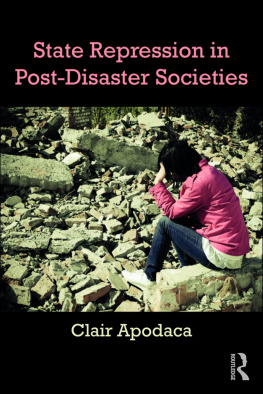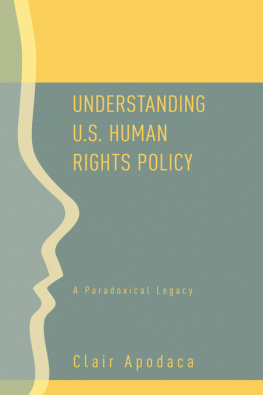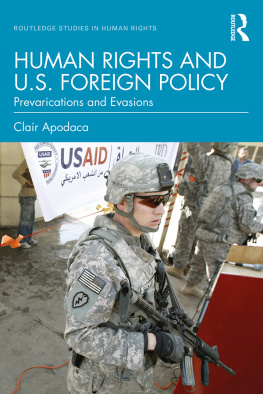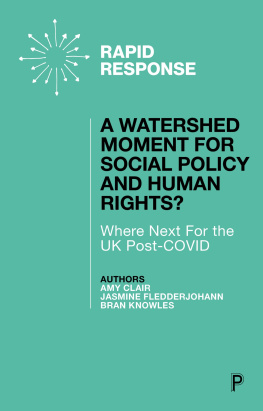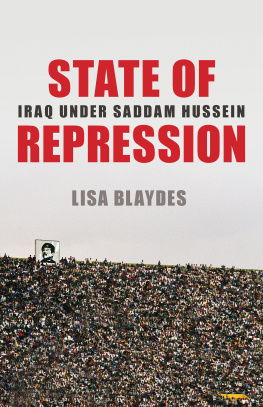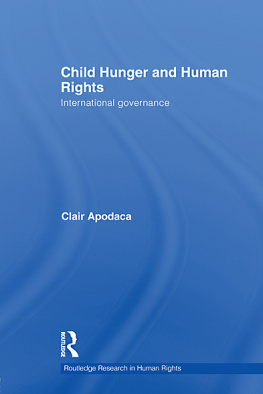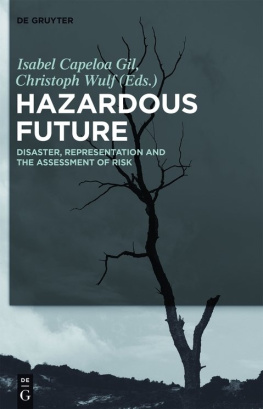Clair Apodaca provides a fascinating account of the relationship between the natural world and the political world. As she painstakingly shows, natural disasters have had a profound effect on politics, especially in non-democratic states. In some instances this has led to the overthrow of the old order. However, at other times the government has responded to the public dissatisfaction of its response with even more repression. As climate change increases, the books timing could not be betternor its message more important.
Mark Gibney, University of North Carolina at Asheville
Clair Apodaca shines a light on one troubling phenomenon that occurs in the aftermath of some of these events: the rise in repression and human rights violations by the government of the affected nation. Apodaca painstakingly traces out a causal process by which dissident movements can arise in the aftermath of natural disasters, the types of regimes under which such movements are likely to arise, and how, when faced with such challenges, which regime types are likely to respond with repression rather than some form of accommodation. Her analysis reveals that NGOs play a crucial role in this process by enabling affected populations in solving the collective action problems that, amid the conditions of a natural disaster, would otherwise preclude social movements by those most affected by the disaster but least served by the emergency aid from the international community. The story is compelling and the empirical tests are rigorous and convincing. This is an important work that creates an intersection between such diverse fields as human rights and state repression, social movements, and emergency management.
T. David Mason, Regents Professor and Johnie Christian Family Peace Professor, University of North Texas
STATE REPRESSION IN POST-DISASTER SOCIETIES
A natural hazard is a physical event but a disaster is a social and political phenomenon. Natural hazards are, for the most part, unavoidable and apolitical. However, they carry with them serious political, economic, and social consequences. Disasters also have adverse consequences on human rights standards. An understanding of the relationship between disasters and human rights outcomes requires knowledge of how disasters increase grievance and frustration and impact the probability of contentious political behavior. To date, there has been little empirical or theoretical research on the specific circumstances under which disasters impact antigovernment political behavior, and even less is known of the causal chain between a natural disaster, protest activity, and human rights violations. In this book, Clair Apodaca maps a comprehensive causal model of the complex interactions between disasters and human rights violations. She claims that pre-existing inequalities and societal grievances turn a natural hazard into a disaster.
A grievance-based theory of protests suggests that the underlying structural causes are social and economic group disparities, political exclusion, along with population pressures. To turn these all too common conditions into active political behavior requires a triggering event. When damage-loss is the primary consequence of a disaster, the government and international community can compensate victims by providing rebuilding and reconstruction aid. However, when the disaster results in high numbers of fatalities, the government and international community cannot adequately compensate survivors for their losses. Grievances cannot be easily or effectively eliminated, and survivors and their supporters mobilize for change even if they are likely to face state repression.
Clair Apodaca offers a unique contribution to our understanding of human rights violations. She effectively shows that there is a causal process between hazard events, protest activities, and government repression, a finding that is key to scholars, practitioners, and policymakers working in this field.
Clair Apodaca is an associate professor in the Department of Political Science at Virginia Tech. Her research attempts to understand the many multifaceted and interrelated causes of human rights violations and how those violations threaten human well-being, the nation-state, and international peace.
First published 2017
by Routledge
711 Third Avenue, New York, NY 10017
and by Routledge
2 Park Square, Milton Park, Abingdon, Oxon, OX14 4RN
Routledge is an imprint of the Taylor & Francis Group, an informa business
2017 Taylor & Francis
The right of Clair Apodaca to be identified as author of this work has been asserted by her in accordance with sections 77 and 78 of the Copyright, Designs and Patents Act 1988.
All rights reserved. No part of this book may be reprinted or reproduced or utilised in any form or by any electronic, mechanical, or other means, now known or hereafter invented, including photocopying and recording, or in any information storage or retrieval system, without permission in writing from the publishers.
Trademark notice: Product or corporate names may be trademarks or registered trademarks, and are used only for identification and explanation without intent to infringe.
Library of Congress Cataloging-in-Publication Data
Names: Apodaca, Clair, 1956 author.
Title: State repression in post-disaster societies / Clair Apodaca.
Description: New York, NY: Routledge, 2017. | Includes bibliographical references and index.
Identifiers: LCCN 2016037473 | ISBN 9781138286085 (hbk) | ISBN 9781138286092 (pbk) | ISBN 9781315268637 (ebk)
Subjects: LCSH: Disaster reliefPolitical aspects. | Natural disastersPolitical aspects. | Human rights. | Political persecution.
Classification: LCC HV553 .A65 20107 | DDC 323/.044dc23
LC record available at https://lccn.loc.gov/2016037473
ISBN: 978-1-138-28608-5 (hbk)
ISBN: 978-1-138-28609-2 (pbk)
ISBN: 978-1-315-26863-7 (ebk)
Typeset in Bembo
by codeMantra
This book is dedicated to my grandchildren Jeremy, Elizabeth, and Ethan
There are several people to whom I owe a debt of thanks for their support, suggestions, and advice when I took up this project. First, and foremost, I would like to thank my husband and colleague, Franois Debrix, for his constant encouragement and, when needed, prodding in the writing of State Repression in Post-Disaster Societies. I would also like to recognize Jeremy, Elizabeth, and Ethan White for their love, inspiration, and video game usage or naps allowing me time to write even when they were visiting. I would also like to extend my gratitude to Ryan Briggs and Steven Wilson for taking the time to answer all my statistical and data questions; and Megan Nanney and Caroline Alphin for carefully reading and providing comments on the final draft of this manuscript. Finally, I would also like to acknowledge Natalja Mortensen, my editor, for allowing me to write this book.
1
THE CAUSAL CHAIN
earthquakes are quite harmless until you decide to put millions of people and two trillion dollars in real estate atop scissile fault zones
(Riesner 1993: 501)
A natural hazard is a physical event but a disaster is a social and political phenomenon. Natural hazards are, for the most part, unavoidable and apolitical. However, they carry with them serious political, economic, and social consequences. Disasters also have adverse consequences on human rights standards, a common measure of political repression. An understanding of the relationship between disasters and political repression requires knowledge of how disasters increase grievance and frustration and impact the probability of contentious political behavior. Unfortunately, there is little empirical or theoretical research on the specific circumstances under which disasters impact antigovernment political behavior, and even less is known of the underlying causal mechanism, and in particular the causal chain between a natural disaster, protest activity, and political repression.

